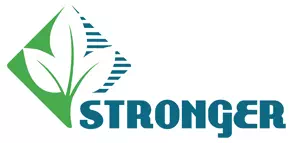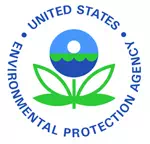|
Federal Insecticide, Fungicide and Rodenticide Act
Introduction
The Federal Insecticide, Fungicide and Rodenticide Act (FIFRA) was first passed in 1947 and amended numerous times, most recently by the Pesticide Registration Improvement Extension Act of 2012. FIFRA provides EPA with the authority to oversee the registration, distribution, sale and use of pesticides. The Act applies to all types of pesticides, including insecticides, herbicides, fungicides, rodenticides and antimicrobials and devices. Generally, pesticides distributed or sold in the United States must be registered by EPA. There are exemptions and exceptions set forth in FIFRA and the implementing regulations, 40 CFR 152. Most states also have a product registration requirement for pesticide use within that state regulate pesticide applicator certification, andhave primary enforcement authority for pesticide use violations.
Pesticides
Used in Well Completion/Workover
Some of the chemicals used in hydraulic fracturing are biocides. Biocides, a type of pesticide, are used to eliminate bacteria that produce corrosive by-products within well casings and to prevent bacteria from clogging fractures in rock formations. In addition, herbicides may also be used along natural gas pipeline rights of way and/or to keep vegetation at bay on and around drill pads, compression stations or gas plants.
Pesticides included in Well Production
Pesticides may be included in the field processing impurities, including wastewater. Pesticide labels may prohibit discharges to bodies of water. Discharges of some pesticides to bodies of water may be allowed under a National Pollutant Discharge Elimination System (NPDES) permit, however, notification of the NPDES state or Federal permitting agency prior to the discharge may still be required.
Requirements for Pesticide Users
Use
Restrictions
As a part of the pesticide registration, EPA classifies the product as general use or restricted use (40 CFR Section 152.160(a)). EPA may prescribe restrictions relating to the product's composition, labeling, or packaging. States may require that applicators applying pesticides at well sites be certified, regardless if a general or restricted pesticide is used. Contact the appropriate state pesticide regulatory official to determine what the state requirements are.
Applicator Certification Requirements
Certain pesticides may be applied only by or under the direct supervision of specially trained and certified applicators. Certification and training programs are conducted by states, territories, and tribes in accordance with national standards. Many states require that all applicators applying pesticides for commercial purposes be certified. State Pesticide Regulatory Officials are responsible for pesticide applicator certification. Contact the appropriate state pesticide regulatory official to determine what the state requirements are.
Use Restrictions
As a part of the pesticide registration, EPA classifies the product as general use or restricted use (40 CFR Section 152.160(a)). EPA may prescribe restrictions relating to the product's composition, labeling, or packaging. States may require that applicators applying pesticides at well sites be certified, regardless if a general or restricted pesticide is used. Contact the appropriate state pesticide regulatory official to determine what the state requirements are.
Label Directions
FIFRA requires users of pesticides to follow the label. The following statement appears on all EPA-registered product labels under the Directions for Use heading: "It is a violation of federal law to use this product in a manner inconsistent with its labeling." In other words, pesticide users are required by law to follow the label when using a registered pesticide product. Of particular importance are:
Not following these or any other condition of use covered by the label would be considered misuse of the product in violation of FIFRA.
More information
|






